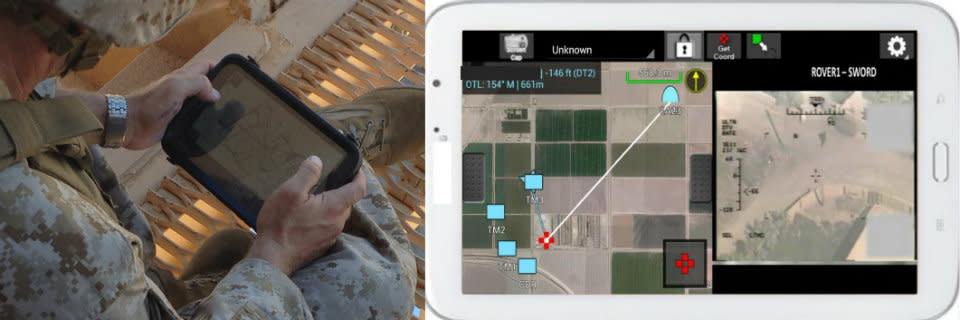KILSWITCH Android tablet delivers airstrikes in four minutes

For years, American Joint Terminal Attack Controllers (JTACs) have been forced to call in their Close Air Support (aka airstrike) requests using radios and paper maps, then wait half an hour or more for help to arrive. During that waiting period, the JTAC would also have to carefully coordinate with and monitor the positions of inbound aircrews in order to avoid friendly fire. However, doing so is far easier said than done when you're in the middle of a firefight. But thanks to a new ruggedized Android tablet from DARPA, our frontline soldiers can call in the air cavalry in less time than it takes to order a pizza. Not have a pizza delivered, order one.
DARPA's Persistent Close Air Support (PCAS) is a two-part system. The PCAS-ground bit runs on a specialized Android-based tablet called the Kinetic Integrated Low-cost SoftWare Integrated Tactical Combat Handheld (KILSWITCH). And while the KILSWITCH has been used in other tactical and navigational applications for a few years already, this is the first time the military has integrated them into air support. The PCAS-air, conversely, is integrated directly into a warplane's tactical systems. Together, PCAS does exactly what the older radio-map method did, but in only four minutes -- that's two minutes faster than DARPA's own goal for the project. They're designed to facilitate real-time situational awareness data sharing between ground forces and overhead aircraft. PCAS relies on live satellite, intelligence, and surveillance feeds to ensure that both parties know exactly where the other one is right up until the bomb bay doors open. This also allows aircrews to use smaller and fewer smart munitions rather than just carpeting the given coordinates with high explosives -- an essential feature in modern urban operations.
DARPA recently put the new system through its paces during TALON REACH, a US Marine Corps infantry/aviation training exercise held in New Mexico. The system performed precisely as advertised. "I am very pleased with the successful PCAS demonstration that we had during TALON REACH," Lt. Gen. Jon M. Davis, the Marine Corps' deputy commandant for aviation, said in a statement. "I have emphasized to my team that we will network every one of our aircraft."

